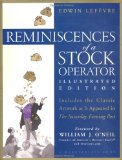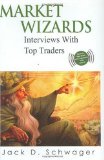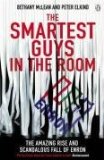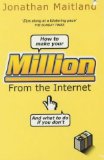
An Online Guide - How to Profit Through Financial Spread Trading |
|
: Recommended Reading
: Markets : Contact : Site Map
|
Recommended reading around the subject of Financial Spread Betting
Anyone interested in investing in any shape or form should definitely buy a copy of "Reminiscences of a Stock Operator" by Edwin Lefevre. It's a classic book written about events at the end of the 19th and beginning of the 20th century and based on the trading of Jesse Livermore. Livermore is widely regarded to be one of the greatest ever market speculators. He made and lost millions, often tending to overtrade wildly. As you read this book it becomes obvious that although many aspects of life have changed in the 90 or so years since this book was written, the behaviour of market participants in booms and busts always seems to be repeated. This is one book that probably should be read often so a trader can remind themselves what it is they should and shouldn't be doing. Another must read is "Market Wizards: Interviews with Top Traders" by Jack Schwager. As the title suggests, this book contains several interviews with traders who were considered to be at the very top of their profession in 1987. Despite the fact that Market Wizards is almost a quarter of a century old it is still surprisingly relevant on the whole. How better to become a successful trader than to read about the views and experiences of those who have already made millions from the markets? "Rogue Trader" by Nick Leeson will not give you any winning strategies that you can use in the markets, nor will it provide you with an inspiring success story. Instead, Nick Leeson describes how it was that he single-handedly destroyed an English bank with a proud heritage by over-trading. An initial error costing just a few thousand pounds grew into an ongoing loss of hundreds of millions as Nick desperately doubled up his bets and attempted to force the market upwards. As he quickly found, no one person can move the market for long and eventually the market will go where it wants to go. Rogue Trader is a fascinating tale of management failings and how massive risks can result in massive losses. Speaking of management failings, "The Smartest Guys in the Room: The Amazing Rise and Scandalous Fall of Enron" by Peter Elkind and Bethany McLean is another highly recommended read. It's obvious that a great deal of work went into this book. Elkind and McLean describe in terrific detail exactly how Enron rose from being a lowly natural gas company into a global giant, admired and envied by companies across the world. It's an incredible story of how some supposedly intelligent businessmen and women cared so much about the stock price that they ended up committing fraud on a huge scale. Enron built up so much debt using separate corporate entities that when one structure failed, the entire house of cards fell. Like Rogue Trader, it's stunning that they got away with what they did for so long. Again, like Rogue Trader, you won't learn any strategies but it may hopefully show that what a company reports and what is actually happening behind closed doors are two different things. In early 2000 the stock market was still soaring due to the tech boom. At the beginning of 2000 TV presenter Jonathan Maitland decided to remortgage his house, borrowing £50,000 in the process, and use the funds to speculate in dot com shares. His aim was to make a million by the end of 2000. "How to Make Your Million from the Internet (and What to Do If You Don't)" is his day by day account of his trading from Tuesday 4th January 2000 to Saturday 16th December 2000. It's a brilliant diary that reflects the mood of the investing community (which was pretty much everybody by this point) towards the end of the dot com boom. Maitland mixes details of his share buys and the reasons for those purchases with tales of his private life. He is very candid about his trading and reading through you will see some common mistakes. At one point he falls in love with a particular share and then completely overtrades it like the obsessed trader he has become. Later, although he doesn't quite grasp the concept of spread betting, he jumps head first in an £800 per point spread bet on his favourite share. In hindsight he was doomed from the start as the FTSE famously peaked on 31st December 1999 but his account reflects the mood of the nation at the time when everybody seemed to want to be a full time trader. Read this so that you know exactly what you shouldn't be doing with a spread betting account. For any novice trader the idea of speculating on share prices using real money can be daunting but reading a book like "How I Made $2,000,000 in the Stock Market" by Nicolas Darvas should give anyone confidence. Darvas was a professional dancer who fell into the world of stock trading completely by accident in the 1950s. After making a little money on his first stock purchase he was hooked and started to trade actively as he toured the world with his dance troupe. Through mostly trial and error he made some money and eventually created his famous "Box" system. By using this box system, distancing himself from distractions and sticking with winners he made a fortune from some of the biggest rising stocks of the 60s. This book details exactly what he did and offers plenty of excellent advice along the way.
|
| © Copyright 2005 - 2024 |





